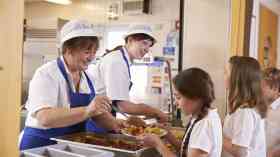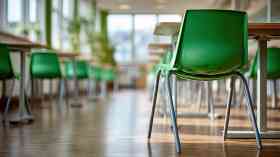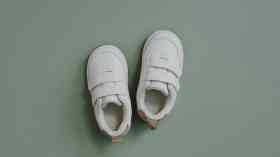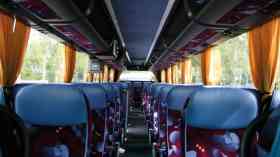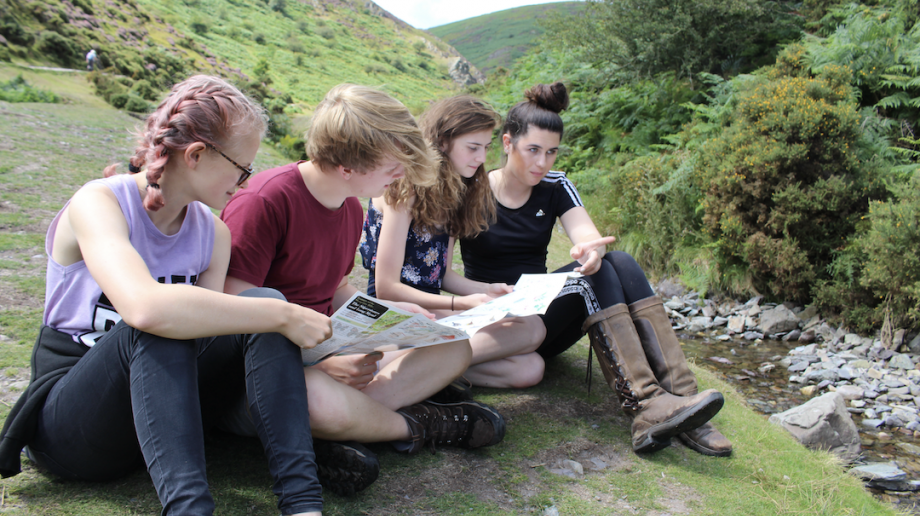
Taking away the four walls of the classroom
Longer school days, summer camps and increased tutoring have all been talked about as ways to help children make up for lost learning time. But outdoor learning and school trips also have a crucial role to play in helping children recover, not just academically, but mentally, socially and physically.
Written by Mark Castle, chief executive of the Field Studies Council
When you take away the four walls of a classroom, something magical happens to the children inside. They bubble with excitement and curiosity. They sit up and they’re suddenly engaged by the overwhelming sense of freedom and adventure that washes over them. For these reasons and more, Mark Castle, chief executive of the Field Studies Council, explains why it’s vital for schools to look ahead and start planning a residential trip in the great outdoors.
After a challenging 12 months and more, the Government gave England’s outdoor education sector the green light to be able to start operating Covid-safe residential trips for schools from May 17 onwards.
For FSC it was a landmark moment in our own roadmap to recovery from the Coronavirus pandemic and one which signalled to us that we could finally get back to doing what we do best – providing fun outdoor learning experiences for primary and secondary pupils.
Children thrive in the outdoors and there is no substitute for hands-on practical experiences in the natural world. Given the chance to embark on a week-long residential school trip youngsters will develop skills they never thought possible, find confidence within themselves that they never knew existed and create memories which will last an entire lifetime. I for one can still recall my first overnight school trip to the Mull of Galloway – Scotland’s most southerly point with miles of beaches and spectacular views.
And this is before we even touch on the array of health and well-being benefits of being active outdoors and the positive impact on mental health.
For more than a year, children have missed out on fun and friendships and have been forced to spend time indoors, isolated, and in many cases inactive, due to the Covid-19 restrictions that have been placed upon them as the nation has attempted to steer its way through this challenging global crisis.
We’ve seen a growing reliance on technology and an increase in screen time for many as home-learning lessons switched online and now, back in the classroom, teachers and pupils are facing the prospect and pressures of academic ‘catch-up’ learning programmes.
Longer school days, summer camps and increased tutoring have all been talked about as ways to help children make up for lost learning time, but as we see it, outdoor learning and school trips also have a crucial role to play in helping our children recover, not just academically, but perhaps more importantly mentally, socially and physically from the restrictions placed upon them.
Social recovery
One of the biggest impacts of the Coronavirus pandemic is the social disruption it has caused. For large chunks of the year, children have worked from home, isolated without their peers around them. Furthermore, ongoing Covid restrictions within schools means, in many cases, there is far less mixing of classes and year groups than there may have been pre-pandemic.
As strides are made to further ease restrictions, come the Autumn term, overnight school trips will provide a chance for pupils to rebuild their friendships and relationships in a positive and fun way.
Having the opportunity to explore together and being away from the school environment allows time for children and their teachers to share experiences and get to know each other better.
There are other benefits too of course. Waking up in the place that you are studying, being out of the classroom environment and away from the usual class hierarchy brings about positive change within children. Suddenly the quieter, less confident children find their voice and the louder ones, begin learning how to listen.
Indeed, being part of a shared experience, whether that is time away from home for the first time, surveying in bad weather or watching wildlife late at night, can bond a group together. Many of our learners comment that it was the encouragement of their peers that helped them try and succeed at new and scary things.
Sharing space – whether that is at mealtimes or by sharing rooms with others that they may not usually mix with, develops social skills and cross-cultural understanding. For younger children, simple life skills such as making their own bed or creating a packed lunch adds to a sense of independence and confidence.
Mental recovery
The Covid pandemic has had a profound impact on the mental wellbeing of children and young people and it’s easy to see why. They’ve had to deal with multiple pressures and a lot of uncertainty when it comes to their education. Many more will have experienced grief from bereavement or perhaps loss linked to friendships and freedom. On top of this, they’ve also had to adapt to new and different ways of living.
It is why well-being should form a central part of the ‘catch-up’ programme for our younger generations alongside the academic focus. Numerous studies have found positive links between participation in outdoor learning and significant improvements in mental well-being and children need this now more than ever before.
Being outside can reduce stress and anxiety, boost confidence and self-esteem and help nurture positive emotions so the case for taking children away from the classroom in the form of a school day trip or extended residential break is easily made.
Physical recovery
Learning outside the classroom promotes the healthy, physical development of children. It gives them a sense of freedom to try new activities and explore landscapes that they might not otherwise get to experience.
Children by their natural curiosity are drawn to physical play and learning outdoors enables them to develop skills and build confidence that they might not be able to demonstrate inside the four walls of a classroom.
As I mentioned at the start of this article, something magical happens when you give children freedom in nature. They become more aware, engage better and if given enough opportunity to spend time outdoors when they’re young, they will grow up to appreciate the benefits of a healthy lifestyle through physical activity.
Through active play outside in nature, youngsters will also begin to appreciate and care for our environment, adopt valuable problem-solving skills and make sense of messy data – the very skills and attributes which will all be necessary for our children to gain future careers and support the UK’s growing green agenda.
Academic recovery
We can all learn from textbooks and screens but they can only teach us so much. There is nothing like seeing the real thing. Experiencing a landscape and the natural world first-hand for example is what engages all our senses.
It is this that can really fix something in the minds and memories of young people and they themselves have told us that they have been in exam rooms and been able to recall those first-hand experiences.
Seeing and experiencing helps consolidate learning and it often enables learners to make sense of a subject.
Furthermore, there’s not a single subject on the school curriculum that cannot be taught outdoors. Take even the most reluctant mathematicians outside into the natural world, connect their learning to nature, and they will rediscover their enthusiasm for learning.
Planning a safe trip
For teachers and schools looking to plan a safe school residential trip, it’s probably easier than they think as the sector itself has had plenty of time to do its homework, put in place covid-secure arrangements for sleeping, eating and socialising and develop a range of protocols to ensure those visiting stay as safe as possible during their trips.
Providers of outdoor education are adept at dealing with health and safety protocols and are experts when it comes to developing and adopting robust risk assessments so schools can be confident, we know what we are doing when it comes to creating safe environments for children to learn and play.
At FSC, we have transformed our centres and put in place a range of new Covid-secure measures and our staff work with individual schools to support teachers to ensure all the appropriate risk assessments have been carried out prior to arrival.
For more information or to discuss your school trip requirements please visit us online at https://www.field-studies-council.org/courses-and-experiences/
Further Information:Latest News
31/10/2025 - 10:12
A growing number of UK children are now eligible for Free School Meals (FSM), yet most still aren’t taking advantage of them on a daily basis, new research reveals.
30/10/2025 - 01:28
In the wake of the Raac crisis, the DfE spent £5 million on research into the condition of school buildings, which is due to conclude in spring 2026.
30/10/2025 - 01:09
Malmesbury Primary School in Wiltshire has submitted plans for a major expansion, funded by entrepreneur James Dyson.
30/10/2025 - 00:55
Monday's Every Pair Tells a Story campaign to protest to highlight the national crisis in SEND provision.
29/10/2025 - 09:19
Estimated data from the Department for Education reveals that 470,000 pupils under 16s use local authority funded transport to get to school.

